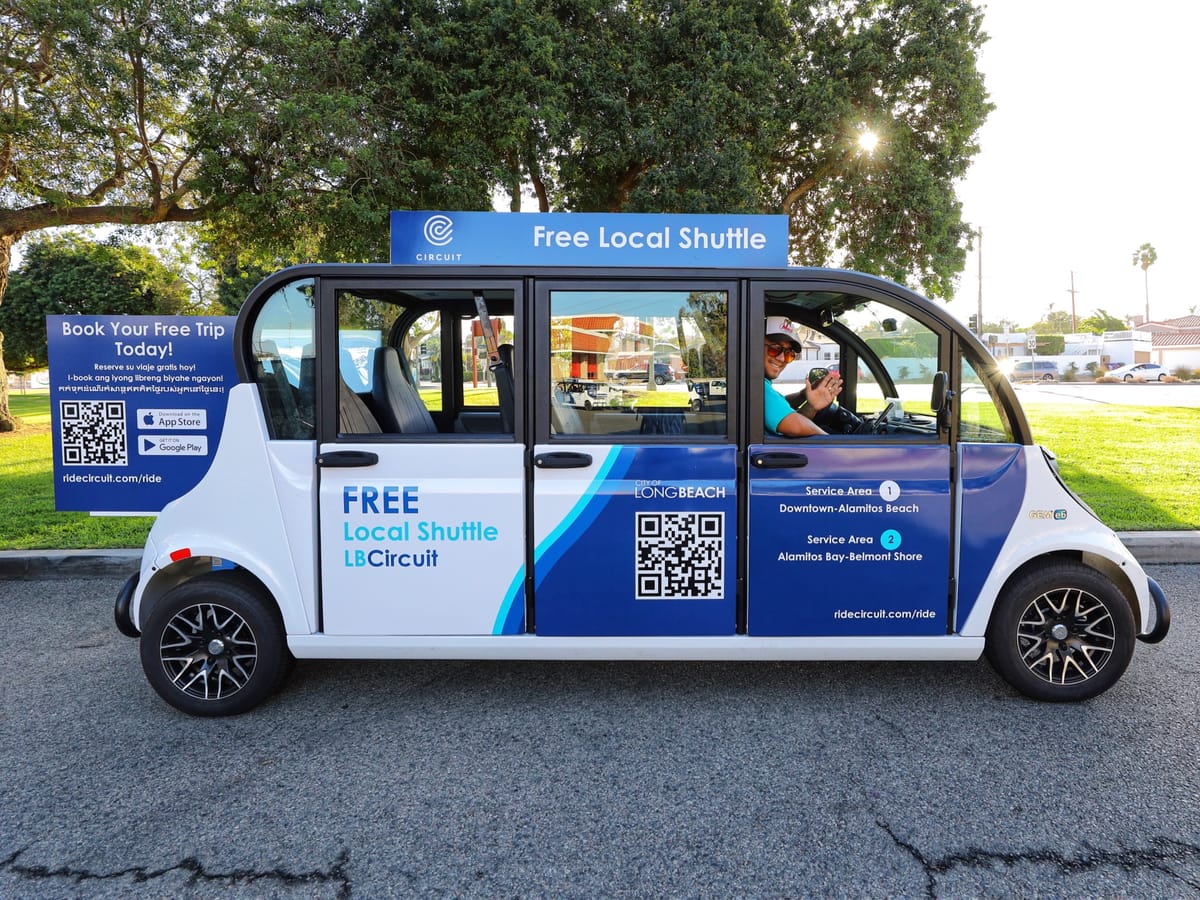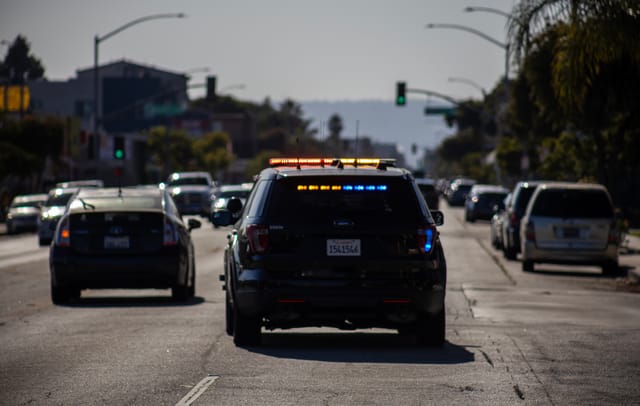Long Beach extends free micro-transit program between Downtown and Alamitos Bay
The micro-shuttle program will now offer free rides between the Queen Mary and Alamitos Bay.

Long Beach’s micro-transit shuttle program serving the shoreline communities was extended Tuesday night but some City Council members are asking for improvements to transportation options before the 2028 Olympics.
The council approved an extension with Circuit Transit that could see the program funded for the next three years through the use of grants and Los Angeles County Metro funds.
The roughly $6.4 million contract will see the fleet of transit shuttles that serve the Belmont Shore and Downtown areas more than double from six to 14 and also connect the two service areas.
The program that was implemented to reduce car trips, alleviate a parking crunch and stimulate business sales in the area has been operating as a pilot program with two service areas that were not interconnected. Now, riders who use the app to hail rides on Circuit shuttles can travel between the Queen Mary and Alamitos Bay without having to switch vehicles.
“We really want to be able to close the gap between the Downtown and Belmont Shore service areas,” said Public Works Deputy Director Josh Hickman.
Hickman said in addition to more vehicles being deployed as part of the extension that the hours of operation on Sundays would also be extended. Currently, shuttle service stops at 6 p.m. but because of demand, those hours will be extended to 8 p.m.
While the council voted to extend the contract, some voiced concerns that the micro-transit isn’t at the scale of what will be needed to move potentially tens of thousands of people around the city once the 2028 Olympics arrive.
“Something that picks up five people is not going to solve anything in the long term,” said Councilmember Megan Kerr.
Kerr noted that Long Beach Transit used to have multiple Passport buses that would move people around the same area for free but it has since been discontinued.
Part of the funding for the extended contract was a grant specific to the micro-transit program but up to $2 million each year could come from Metro funds, which can pay for a variety of public transportation improvements in the city.
Hickman told the council that the program is averaging a per-rider cost of about $12 per trip.
Kerr wondered if the expansion of the program to include more senior housing locations and St. Mary’s hospital on Tenth Street would serve the intended audience because not all seniors have access to smartphones. She asked if public dollars might be better spent in the future by partnering with local transit agencies.
“This money into their budget might be helpful,” Kerr said.
City Manager Tom Modica assured the council that the Olympic transportation plan is not focused on the Circuit program.
Los Angeles leaders said last month that the 2028 games would be “car-free” but it’s unclear how cities hosting games will ramp up bus or train services to accommodate the throngs of people expected to visit the region.
The micro-transit program would have to be extended again if city leaders plan to have it be an option in 2028.
The city also plans to reinvest revenue from advertising on the shuttles back into the program. Hickman said that since May ad space has generated over $87,000, which the city splits with Circuit.

We need your support.
Subcribe to the Watchdog today.
The Long Beach Watchdog is owned by journalists, and paid for by readers like you. If independent, local reporting like the story you just read is important to you, support our work by becoming a subscriber.





